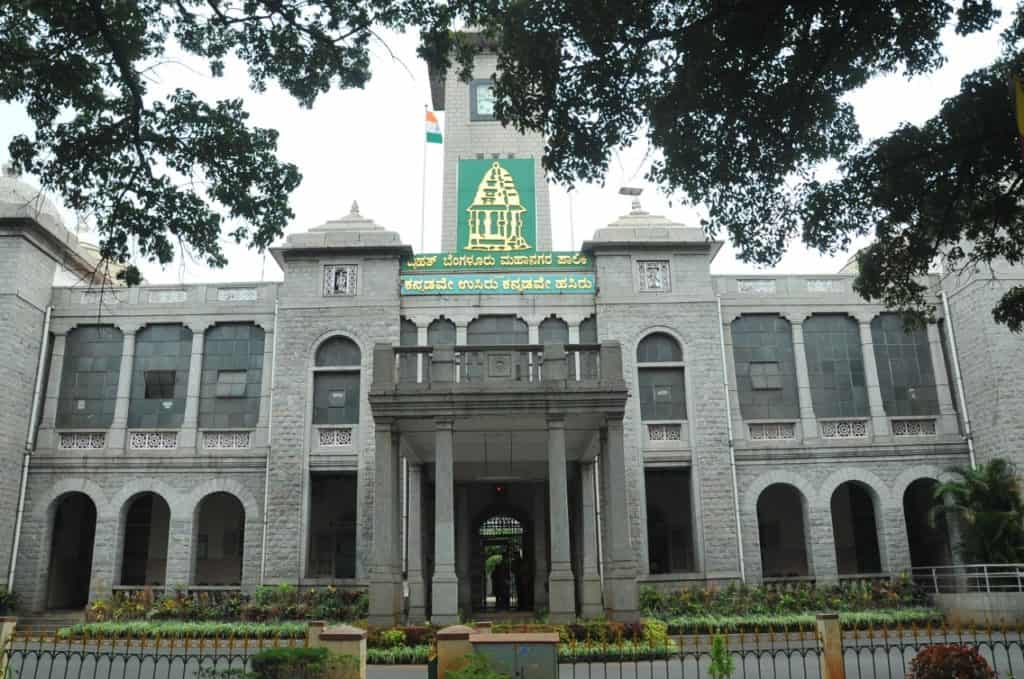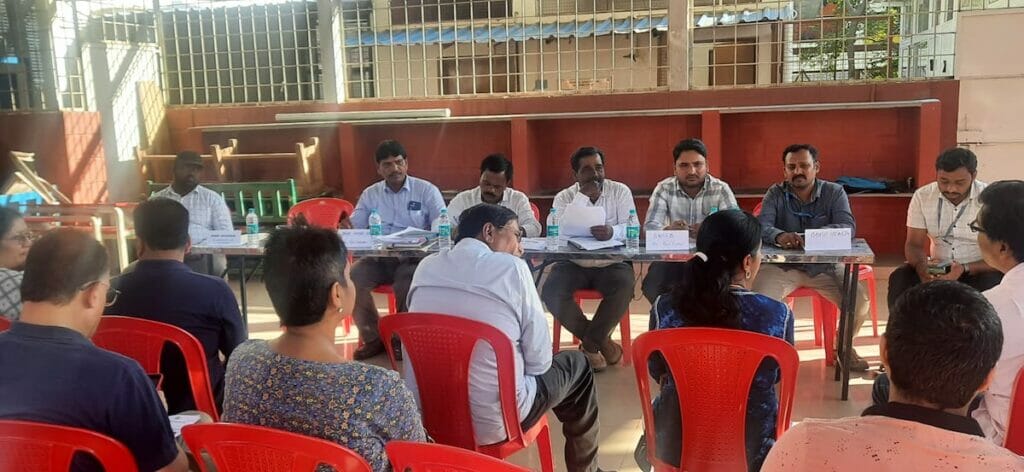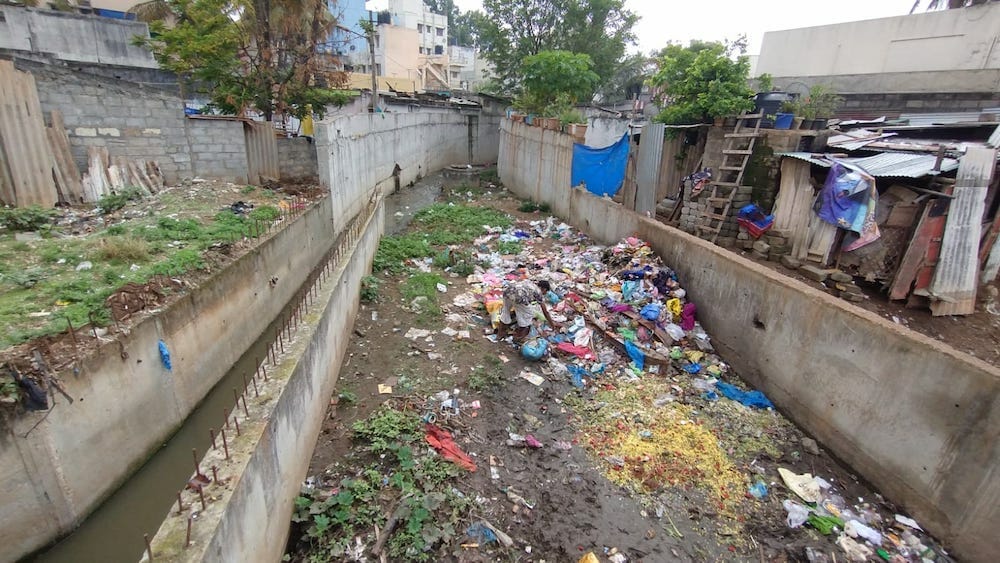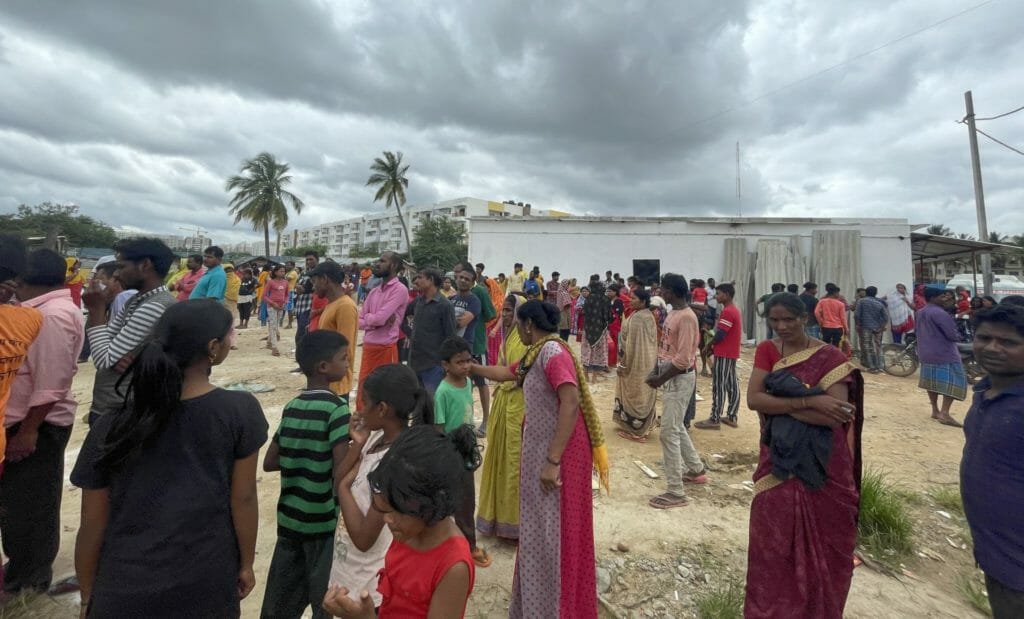On June 17th, DK Shivakumar, as the Deputy Chief Minister and the Bengaluru Development Minister held a meeting of 42 eminent personalities and experts to look into issues that need to be fixed in the city. The idea is to reform Brand Bengaluru by constituting a committee of industry leaders and officials. The state government also launched a website where the public can offer comments. City based NGO, Environment Support Group (ESG), has criticised the move for being elitist.
The organisation is appealing to the government to undertake Bengaluru’s development through elected representatives in the Metropolitan Planning Committee (MPC). Although the government appears to be seeking comments directly from the public through the website, Nidhi Hanji, lawyer with ESG, questioned how accessible websites would be to everyone living in the city.
History repeats itself
The proposed Brand Bengaluru committee would be at least the eighth such committee, task force or group that subsequent state governments have created for the city. The Bangalore Agenda Task Force (BATF), headed by Nandan Nilekani, was one of the earliest such committees formed in 1999 by former Chief Minister, SM Krishna.
Other such committees include the Kasturirangan Committee, Agenda for Bengaluru Infrastructure and Development Task Force (ABIDe), Bangalore Vision Group (BVG), and the BBMP Restructuring Committee. The last committee was tasked with restructuring the BBMP for more effective governance and has been reconstituted by the current government with three of the same members.
Read more: Task forces and vision groups of Bengaluru – how many do you remember?
While the names have remained the same over the years, little has changed in the composition of the committees, say activists. Many of these committees comprise retired bureaucrats, industrialists, celebrities. However, inputs from a large diverse citizenry have been missing in the past, according to activists.
Old wine in a new bottle
Unfortunately, little seems to have changed in the newly elected Congress government’s thinking. The idea of the Brand Bengaluru Committee would have the same issues that previous committees had, explains Nidhi from ESG. The government listens more to elites, who have little experience of the struggles of ordinary and marginalised citizens.
Suggestions given by the experts include fast-tracking public transit systems like the metro and suburban rail. But they also recommended expensive, potentially environmentally damaging infrastructure, such as underground tunnel roads, increased road widening, elevated roads and competition of the Peripheral Ring Road (PRR), which is still mired in land conflict.
Elitist and exclusive
“We are not against the idea of consulting corporations or celebrities. But we believe Bengaluru’s growth must be decided directly by the citizens from all backgrounds,” Nidhi says.
What was missing was the presence of members of marginalised communities, citizen groups or representatives of important service providers, such as sanitation workers or BMTC staff. In a letter to the government, ESG criticised seeking opinions from the elite and what the organisation termed as rehash of old and ineffective measures.
The organisation pointed out the Karnataka state government’s history of placing all of its trust on a “network of rich and famous personalities largely drawn from IT/BT sector, film and entertainment industry, real estate developers and the like to imagine what is right for Bengaluru.”
Indeed, a 2013 research paper by researcher Neha Sami from IIHS documented how state chief ministers (from both parties) used their personal social networks to constitute elite taskforces like BATF and ABIDe. The coalitions, the author writes, pursued very economic and development goals that were aligned largely with attracting foreign investors.
Goals that largely favour the rich may be in the offing again. The media reports that DK Shivakumar also has plans to turn the city into Singapore, an old dream of former CM SM Krishna who constituted BATF. After the initial Brand Bengaluru meeting, Shivakumar said that he would constitute a committee to create a master plan for Bengaluru within the next six months. This committee would comprise government officials and private individuals. Again, leaving out vast sections of the city’s residents.
Strengthen local government

Nidhi points out that the solution is to conduct the long overdue BBMP elections and constitute the Metropolitan Planning Committee (MPC), which by law is supposed to comprise elected BBMP officials. “Large infrastructure projects should go through the MPC,” she says. She also points out the need for ward committees to decide on civic issues based on needs of different neighbourhoods.
“We have legally mandated constitutional structures in place for governance of the city. We should use those.” These structures are not perfect though. The MPC has never been a functional body. The state government has always exerted control over it with the with the chief minister as chair. The BBMP Act (2020) further tightened the state government’s grip over the city and rendered ward committees toothless by making them advisory bodies only.
Nidhi and ESG suggest that the state government should focus on strengthening local government and citizen participation. Even the Karnataka High Court criticised the state government for attempting to plan yet another ad-hoc committee in 2018. The government under HD Kumaraswamy formed the Bengaluru Blueprint Action Group (BBAG), to be headed by Infosys chairman Narayan Murthy. The court ruled that MPC was the lawful planning authority for the city. Other committees did not have the legal standing.

“The hope was that at least now, 31 years after the enactment of the Constitutional 74th Amendment (Nagarpalika) Act, 1992 to deeply decentralise urban administration and genuinely devolve power to the local government, which is often stated to have been Prime Minister Rajiv Gandhi’s dream, the Government would make real efforts now with the massive mandate for reform that it has received,” says ESG’s letter to the state government. You can read the full letter here.
Read more: Karnataka’s new municipal law tightens Govt grip on BBMP
Public suggestions online
The state government did technically attempt to involve the public. They launched a Brand Bengaluru website and a WhatsApp number (9480685700), where members of the general public could give suggestions. The website does not work easily and is quite glitchy. BBMP reported that the WhatsApp number received thousands of suggestions. Most suggestions pertained to lake development, increasing BMTC fleet, implementing solid waste management rules, and improving road quality. The agency also extended the deadline by ten days.

While several large NGOs sent in suggestions, smaller groups working directly with marginalised communities knew nothing about Brand Bengaluru. Yashodha, a field worker from the domestic workers’ rights union, Stree Jaguthi Samiti, had not heard of the Brand Bengaluru meeting or the website. Yashodha, who is a graduate and helps marginalised women with forms or applications for government schemes or anything to do with computers, was blank when I asked her about Brand Bengaluru. “If I as an educated woman did not know about this, how are women living in slums and doing domestic work, going to understand how to give suggestions?”
Yashodha suggests prioritising women in low income neighbourhoods. She suggests that controlling rent in the city, fixing underground drains, ensuring access to drinking water and electricity for all.
Isaac Amruthraj, of Slum Janara Sanghatane, had also not heard of Brand Bengaluru or the website and whatsapp number for feedback. Isaac is not interested in giving suggestions. “We have seen several such committees. They come, say a lot for a couple of months and then forget all about it,” he says. “We have received no support from such committees.” Isaac, instead, relies on networks and relationships built with bureaucrats, politicians, and local MLAs to get help or support for members of the Slum Janara Sanghatne. Regardless of the party in power, such committees are typically not interested in the concerns of the poor, says Isaac.

Many Koramangala residents have give “Ejipura-Agara” Link road as one of the idea to decrease travel time between IRR to ORR, Hope the new Government looks into this project